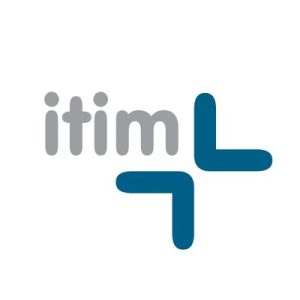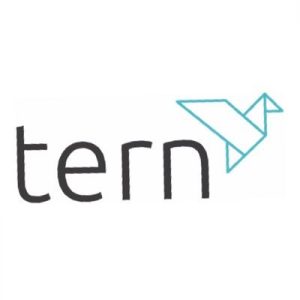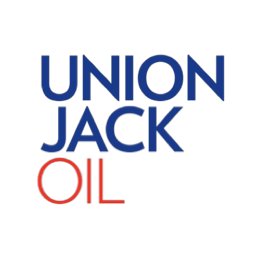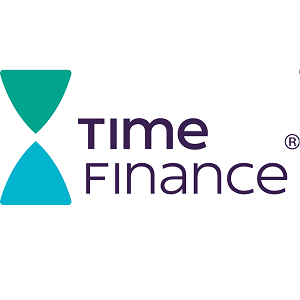Maestrano Group (LON:MNO) has announced that its Annual Report and Accounts are being posted to shareholders today and will be made available on the Group’s website: www.maestrano.com. Key extracts from the report and accounts are presented below.
The Company also announces that the Annual General Meeting of the Company will be held at 9.00am on 30 December, 2018 at the offices of Grant Thornton UK LLP, 30 Finsbury Square, London, EC2A 1AG
STRATEGIC REPORT
The directors present their strategic report on the consolidated entity consisting of Maestrano Group plc and the entities it controlled at the end of, or during, the year ended 30 June 2019.
The strategic report includes the following sections:
1. Chairman’s statement
2. Review of operations by the chief executive officer
3. Principal risks and uncertainties
4. People
Cautionary statement regarding forward-looking statements
This document contains certain forward-looking statements. These forward-looking statements include references to matters that are not historical facts or are statements regarding the Company’s intentions, beliefs or current expectations concerning, among other things, the Group’s results of operations, financial condition, liquidity, prospects, growth, strategies, and the industries in which the Group operates. Forward-looking statements are based on the information available to the directors at the time of preparation of this document, and will not necessarily be updated subsequent to the issue of this document. The directors can give no assurance that these expectations will prove to be correct. Due to inherent uncertainties, including both economic and business risk factors underlying
such forward-looking information, actual results may differ materially from those expressed or implied by these forward-looking statements.
Principal activities
Maestrano is a United Kingdom (‘UK’) incorporated software company with operations in Australia (main country of operation), Japan and the UK. Maestrano offers a patented cloud-based platform for master data management and business analytics, together with specialist hardware and software for capturing, analysing and reporting on large datasets within the transport sector, employing sophisticated artificial intelligence algorithms.
- Chairman’s statement
The financial year 2018-19 was characterized by 10 months of strong execution and delivery in line with both our business plan and market expectations, followed by the unexpected news that our major US bank customer had decided to focus on other areas of its technology and close their Maestrano driven platform.
Revenue for the year was down by 7% compared to 2017-18 but was close to market expectations and our business plan. Expenses were driven by the requirements of the contracts we held through the year, and as such were also in line with our business plan. From May onwards the Company moved to curtail headcount and expenses significantly as we began to review strategy and future options.
I would like to express the board’s appreciation for the exceptional dedication and hard work of our teams around the world in delivering a live and scalable data management and data sharing solution for one of the world’s leading banks. We can be proud of what we achieved in product and technology terms.
On 23 September 2019, the Group announced the signing of a sale and purchase agreement to acquire, subject inter alia to Shareholder consent, the entire issued share capital of Airsight Holdings Pty Ltd (“Airsight”). Airsight offers engineering surveying services with digital recording devices and a reason for the acquisition was that the Airsight software performs a similar function to that of Maestrano, capturing, analysing and reporting on large datasets within the transport sector, but with the addition of sophisticated artificial intelligence algorithms. On 31 October 2019, our Shareholders approved the acquisition. A copy of the circular convening the general meeting at which the acquisition of Airsight was approved can be found on the investor section of the Company’s website,
www.maestrano.com.
The board has confidence in the long-term outlook for shareholder value, based on progress achieved by Airsight since the acquisition.
Ian Buddery
Chairman
27 November 2019
2. Review of operations by the chief executive officer
Maestrano Group Plc (“the group”) provides a Master Data Management Platform that enables medium to large enterprises to offer a differentiated service to their SMB customers, who benefit from data sharing between existing popular Cloud applications and the Enterprise’s services, together with custom data analytics, thus increasing customer engagement and business volume.
Maestrano was able to make good progress throughout the majority of year to 30 June 2019 until the point that our major US banking customer elected to focus on other areas of its technology and accordingly took the decision to close their Maestrano driven platform.
Overview of results
Revenue for the year was close to market expectations, following the Company taking a cautious view of outlook in prior trading statements.
Maestrano signed a multi-phase contract with a major USA bank in December 2017 for a platform roll out that was intended eventually to reach all of its 4 million small to medium business (“SMB”) customer base. The platform was successfully delivered and taken live in November 2018, a major achievement for a small company working with such a prestigious, large and very well-known US bank.
The majority of the revenue for year emanated from the major USA bank contract, with revenues also being gained from a contract with an Australian bank, which, as announced, also ended subsequently to the end of the financial year. Revenues from the company’s two other active contracts were less than 10% of revenue during the year.
The company recruited for sales, engineering and customer support specialists to service these contracts, incurring the expected significant expenses as a result. The teams in place performed very strongly throughout the year and leading up to the decision taken by the US bank in May 2019. The losses for the year were in line with expectations and were required to enable contracts with previously expected future revenues to be serviced.
Ongoing operations
The Company operated from offices in London, Sydney and New York City. Following the decision taken by the major US bank in May the company significantly reduced headcount and expenses to conserve cash, closed the London office on the expiration of lease in June 2019, and subsequently also ceased operations in New York following the end of the financial year. As of 30 June 2019, the Company had cash and receivables totalling £2,739,986.
Outlook
The Company spent significant time and effort from May 2019 onwards and into the subsequent financial period assessing its strategy and generating various options, as well as seeking to conserve cash, and accordingly investors should note that the revenue and profit outlook for the year to 30 June 2020 is largely subject to events occurring after the end of the year to 30 June 2019 and in particular the acquisition of Airsight that was approved by shareholders on 31 October 2019. It is noted that revenue from the US bank continued beyond 30 June 2019 but will cease during the year ending 30 June 2020.
Andrew Pearson
Chief Executive Officer
27 November 2019
3. Principal risks and uncertainties
The management of the business and the execution of the Group’s growth strategies are subject to a number of risks which could adversely affect the Group’s future development. The following is not an exhaustive list or explanation of all risks and uncertainties associated with the Group, but those considered by management to be the principal risks:
Risks relating to the Group and the industry in which it operates
Dependence on major clients
The Group’s future growth relies on new sales to rail and road network owners in multiple countries. These owners typically have complex procurement arrangements which include product trials and competitive tenders. This risk is mitigated by the Group’s plan to enter into reseller agreements with Engineering Consulting firms, who will in effect become the clients.
Business strategy
Although the Group has a clearly defined strategy, there can be no guarantee that its objectives will be achieved or that the Group will achieve the level of success that the Company’s directors expect. Therefore, the Group may decide to change aspects of its strategy as needed. The Group’s ability to implement its business strategy successfully may be adversely impacted by factors that the Group cannot currently foresee, such as unanticipated market forces, costs and expenses or technological factors. Should it be unsuccessful in implementing its strategy or should it take longer than expected to implement, the future financial results of the Group could be negatively impacted. This risk is mitigated by the continual review of the business performance to its plan and that changes are made to
ensure the Group has sufficient liquidity to pursue its current plan.
Technological changes
Generally, product markets are exposed to rapid technological change, changes in use, changes to customer requirements and preferences, and services employing new technologies and the emergence of new industry standards and practices. The Group operates in a market with such changes which have the potential to render the Group’s existing technology and products competitively impaired.
To successfully remain competitive, the Group will ensure continued product improvement, and the development of new markets and capabilities to maintain a pace congruent with changing technology. This added strain may stretch the Group’s capital resources which may adversely impact the revenues and profitability of the Group. The Group’s success is dependent on the ability to effectively respond and adapt to technological changes and changes to customer preferences. There can be no assurance that the Group will be able to effectively anticipate future technological changes or changes in customer preferences. Furthermore, there is also no assurance that the Group will have sufficient financial resources to effectively respond in a timely manner if such a change is anticipated.
Competition
There is no guarantee against new entrants or current competitors providing superior technologies, products or services to the market.
There is no certainty that new entrants or current competitors will not provide equivalent products for a lower price. The Group may be forced to make changes to one or more of its products or to its pricing strategy to effectively respond to changes in customer preferences in order to remain competitive. This may impact negatively on the Group’s financial performance. The Group will continue to review its competitive position and adjust its business plan to maintain relevance to its customer’s requirements.
Inability to contract with customers on the most favourable terms to the Group
The Group contracts with a wide variety of companies and partners, many of which are in strong negotiating positions and have greater financial resources than the Group. The Group may in the future have limited scope for negotiation of the price or contract terms with its some of its major clients.
The Group’s software may not perform as expected and the Group could be at risk of defects which adversely affect its customers
There is no guarantee that the Group’s platforms will perform as intended. Costs spent on developing the Platform may therefore not be recouped and this may result in reduced profitability for the Group. As the Group’s platforms are complex, they may contain defects or vulnerabilities which may not be detected until after its deployment to major customers. To mitigate this risk the Group has implemented applicable internal code review and testing processes. The software is then subject to customer acceptance testing and an ongoing high level of technical support.
Data security and data privacy
The Group is subject to data and privacy regulations, particularly General Data Protection Regulation (‘GDPR’). Failure to comply with legal or regulatory requirements relating to data security or data privacy in the course of the Group business activities, results in reputational damage, fines or other adverse consequences, including criminal penalties and consequential litigation, adverse impact on the Group’s financial results or unfavourable effects on the Group’s ability to do business. To mitigate this risk the Group has implemented policies and processes to ensure data is held securely and privacy is maintained.
Dependence on key executives and personnel
The Group is dependent on a small number of key executives. In addition, the future performance of the Group will, to some extent, be dependent on its ability to retain the services and personal connections or contacts of key executives and to attract, recruit, motivate and retain other suitably skilled, qualified and industry experienced personnel to form a high calibre management team. Such key executives are expected to play an important role in the development and growth of the Group, in particular by maintaining good business relationships with regulatory and governmental departments and essential partners, contractors and suppliers. The failure to appoint or retain such people could adversely affect the Group.
Ability to recruit and retain skilled personnel
The Group believes that it has the appropriate incentive structures to attract and retain the calibre of employees necessary to ensure the efficient management and development of the Group. However, any difficulties encountered in hiring appropriate employees and the failure to do so, or a change in market conditions that renders current incentive structures ineffective, may have a detrimental effect upon the trading performance of the Group. The ability to attract new employees with the appropriate expertise and skills cannot be guaranteed.
Financial controls and internal reporting procedures
The Group’s future growth and prospects will depend on its ability to manage growth and to continue to maintain, expand and improve operational, financial and management information systems on a timely basis, whilst at the same time maintaining effective cost controls. Any damage to, failure of or inability to maintain, expand and upgrade effective operational, financial and management information systems and internal controls in line with the Group’s growth could have a material adverse effect on the Group’s business, financial condition and results of operations. The Group mitigates this through the implementation of internal controls as well as the review of monthly financial performance by the Board.
Economic uncertainty
Any economic downturn either globally or locally in any area in which the Group operates may have an adverse effect on demand for the Group’s products. A more prolonged downturn may lead to an overall decline in sales. Economic uncertainty might have an adverse impact on the Group’s operations and business results. To mitigate this risk the Group will monitor both the Group’s performance and general market conditions on a monthly basis. The Group will also maintain adequate liquidity to sustain short term
fluctuations in market conditions.
Brexit
Brexit is the withdrawal of the UK from the European Union (‘EU’), following a referendum held in 2016. Failure to prepare for the UK’s departure from the EU causes disruption to and creates uncertainty around the Group’s business including: the ability to recruit; as well as impacting the Group’s relationships with existing and future customers, suppliers and colleagues. These disruptions and uncertainties could have an adverse effect on the Group’s business, financial results and operations. Given the vast majority of the Group’s operations were outside UK and indeed the EU and similarly those of Airsight the recent new acquisition are as well, the
directors do not believe Brexit will have a significant impact on the Group.
4. People
Equal opportunity
The Group is committed to an active equal opportunities policy. It is the Group’s policy to promote an environment free from discrimination, harassment and victimisation, where everyone receives equal treatment regardless of gender, colour, ethnic or national origin, disability, age, marital status, sexual orientation or religion. Employment practices are applied which are fair, equitable and consistent with the skills and abilities of the employees and the needs of the Group.
Disabled employees
Applications for employment by disabled persons are always fully considered, bearing in mind the aptitudes of the applicant concerned.
In the event of members of staff becoming disabled, every effort is made to ensure that their employment with the Group continues and that appropriate re-training is arranged. It is the policy of the Group that the training, career development and promotion of disabled persons should, as far as possible, be identical with that of other employees.
This report is made in accordance with a resolution of directors.
On behalf of the directors
Ian Buddery
Chairman
27 November 2019


















